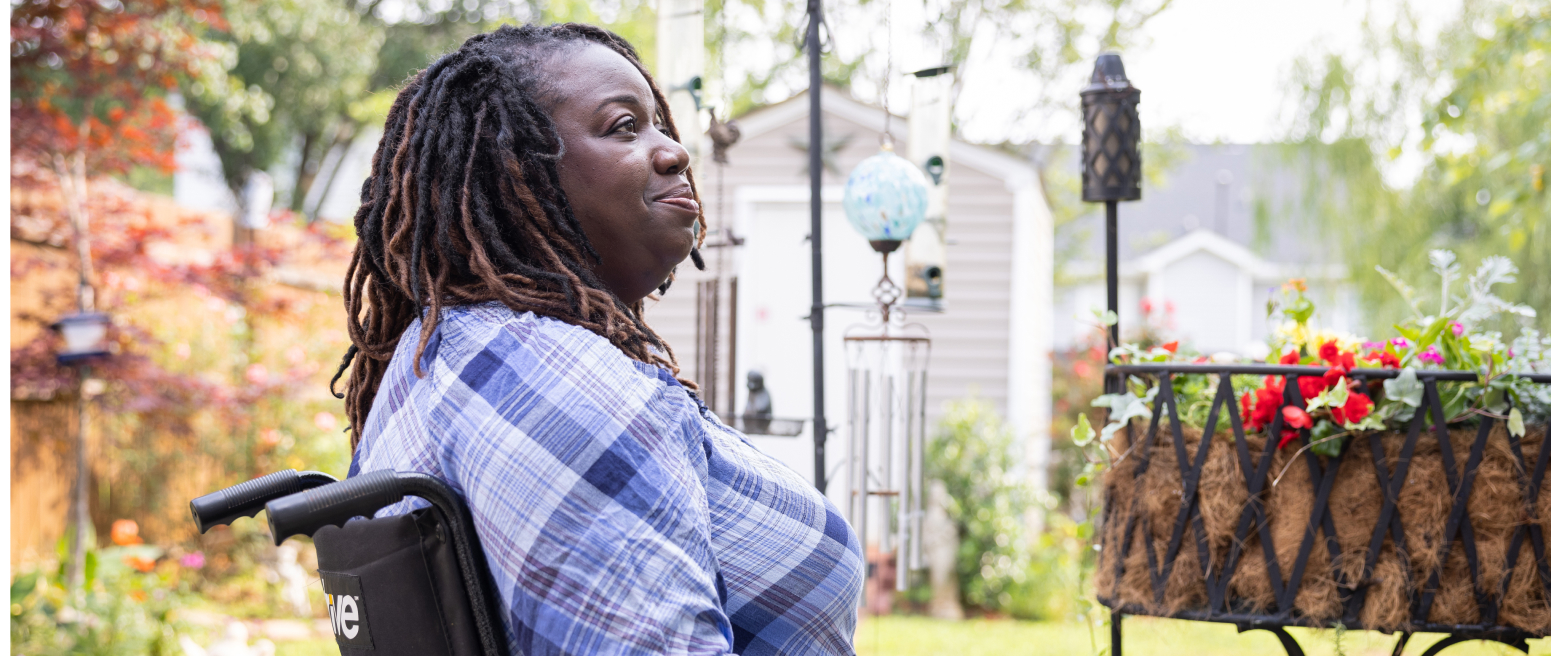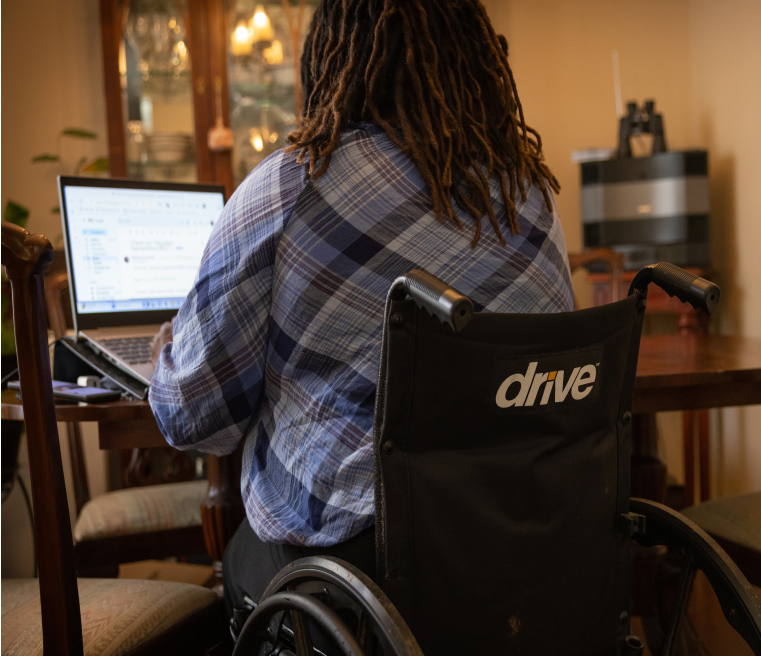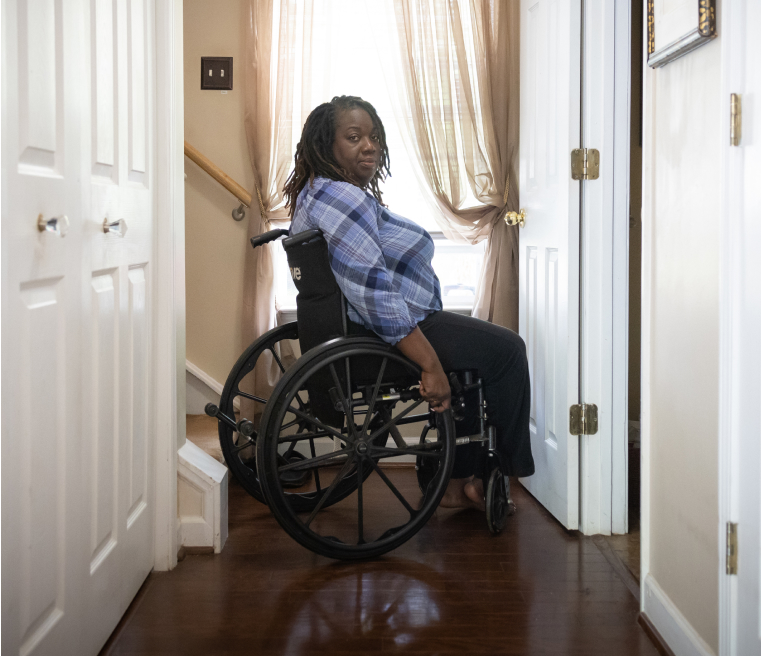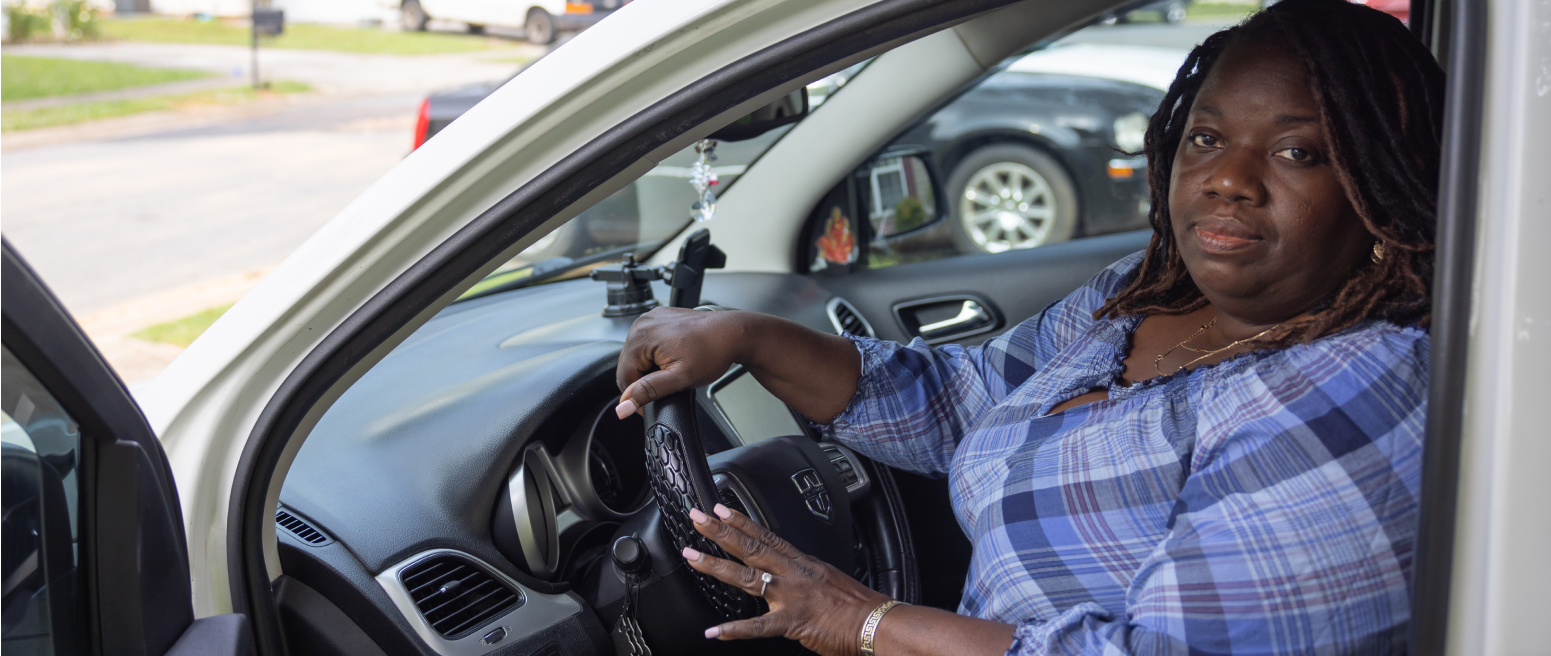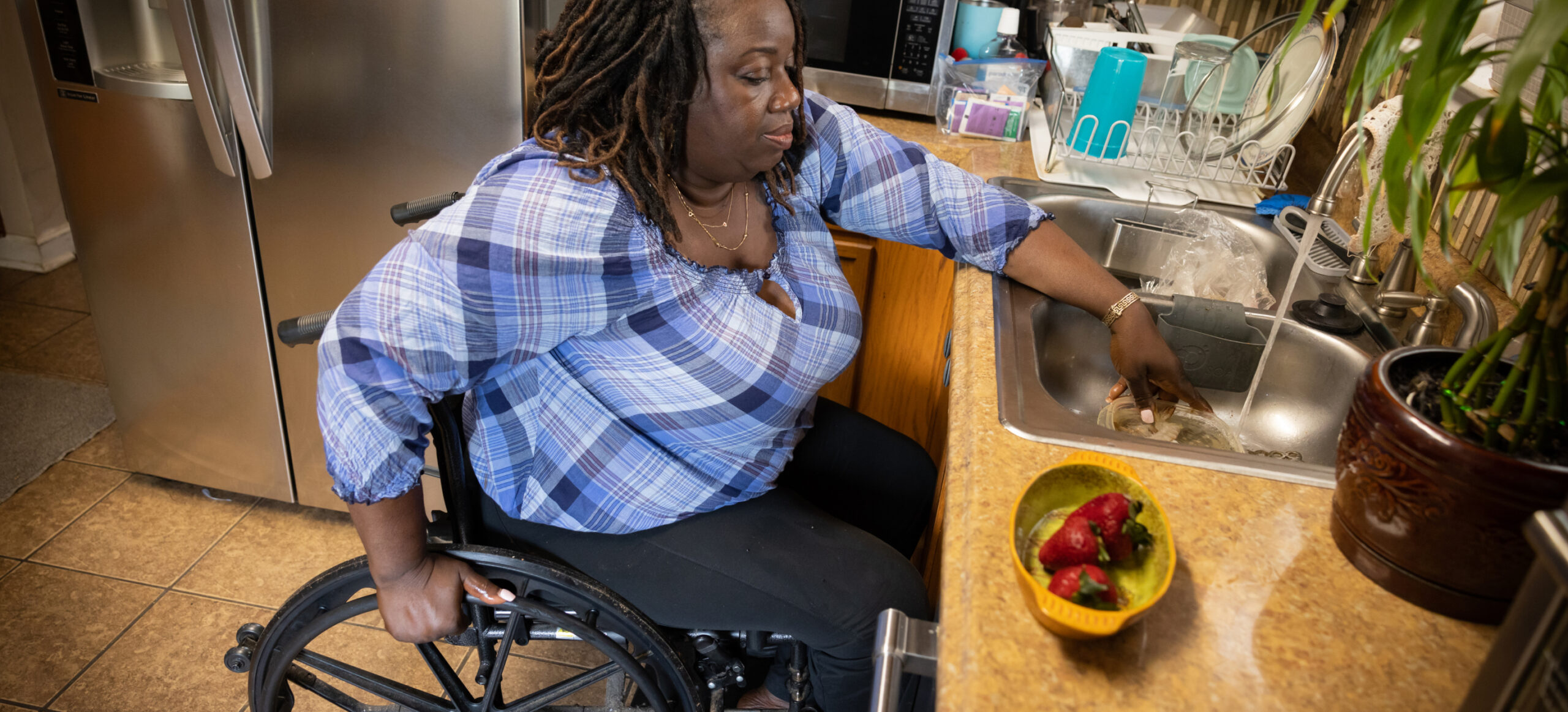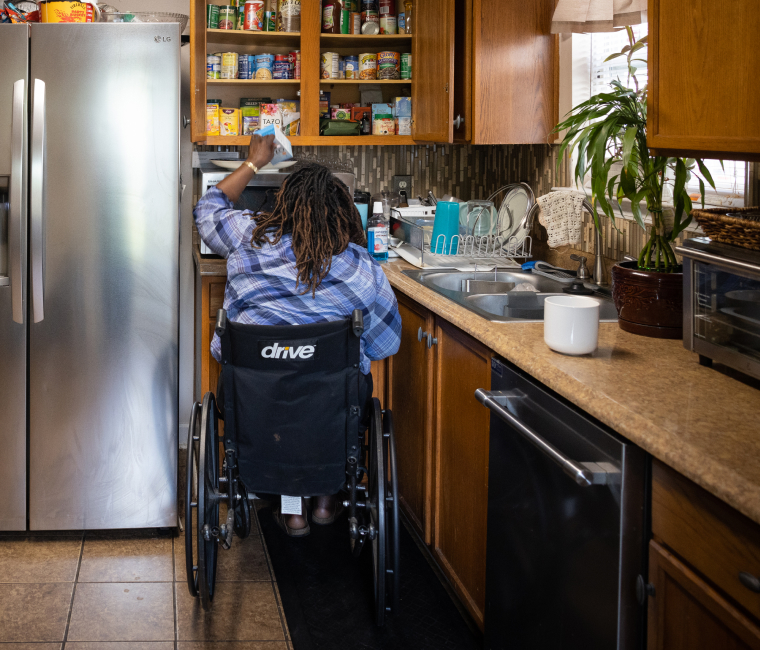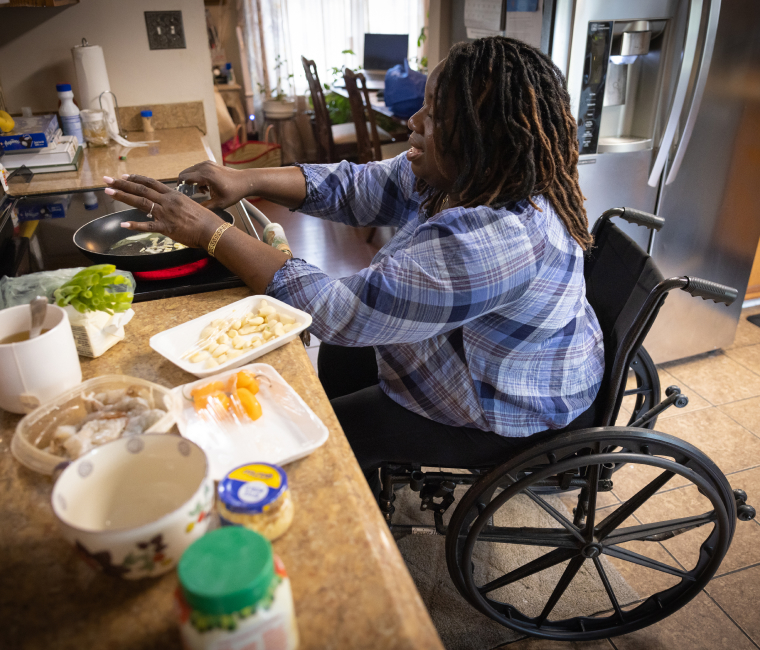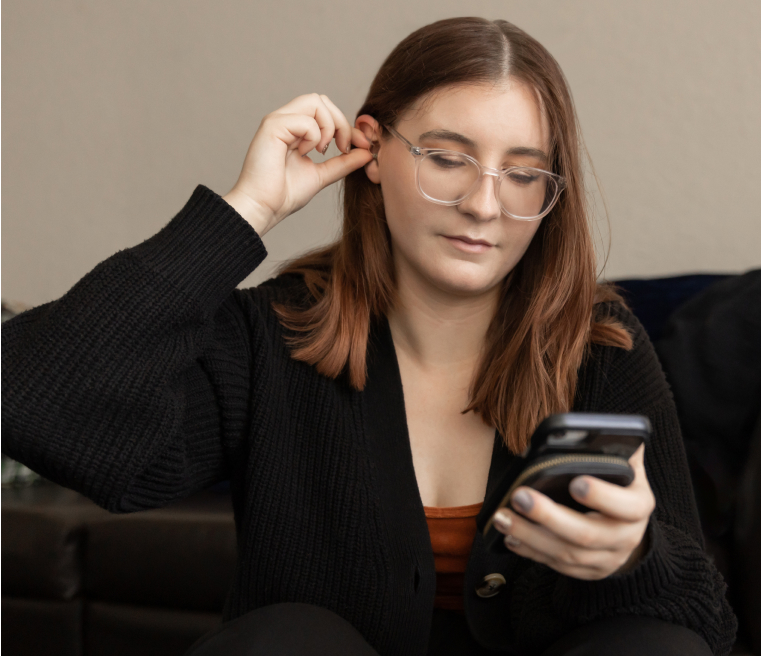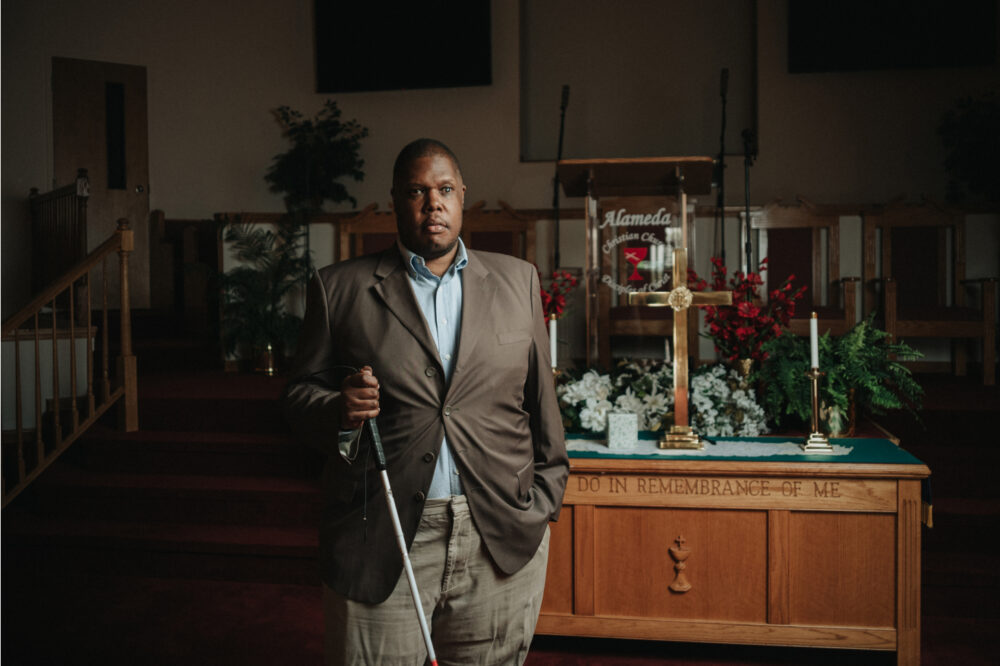‘People Completely Overlooked Me as a Consumer’: Melanie’s Story
What does it feel like to navigate a bank branch as a disabled person? Melanie, who uses a wheelchair, opens up about her experience and shares lessons for the industry as part of our in-depth report on the financial health of people with disabilities.
By Financial Health Network
-
Category:
-
Tags:
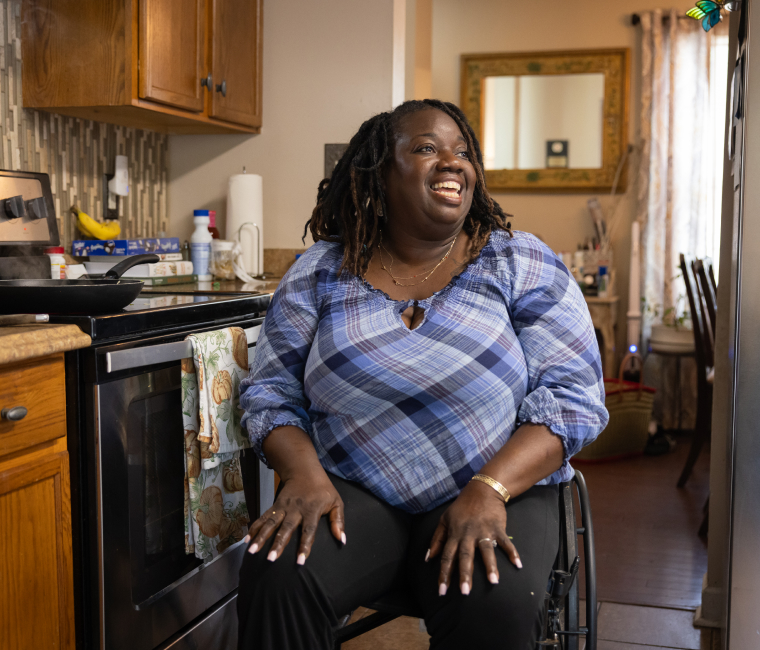
Eager To Work, But Concerned About Losing Benefits
As a former nursing administration unit manager, Melanie spent her days caring for the sick at a 235-bed hospital in New York. When her own illness forced her to retire early from her fast-paced managerial career, the 55-year-old found herself facing serious financial challenges. After her disability application was denied for three years running, Melanie had to hire an attorney to help her secure benefits. While she stays active volunteering in her new home state of North Carolina, Melanie would love to work for pay in a job that can accommodate her needs and symptoms from her condition – but she worries about losing her hard-won benefits.
“People always want to hire me, but if I get higher [hours], I don’t want to lose my good check… Another thing: People say they don’t discriminate, but they do. You’re not the first person that they’re gonna pick to hire, and I just know that.”

Melanie uses a wheelchair to get around and has experienced some uncomfortable interactions at her bank, from employees pushing her wheelchair without her consent to a teller refusing to help her at the accessible counter. She wishes the industry would treat all customers with more sensitivity, pointing to the need for more employee training on diversity and inclusion and different accommodations for people with different needs. Ultimately, she says, people with disabilities want the same thing as anyone else: to be seen and heard as individuals.
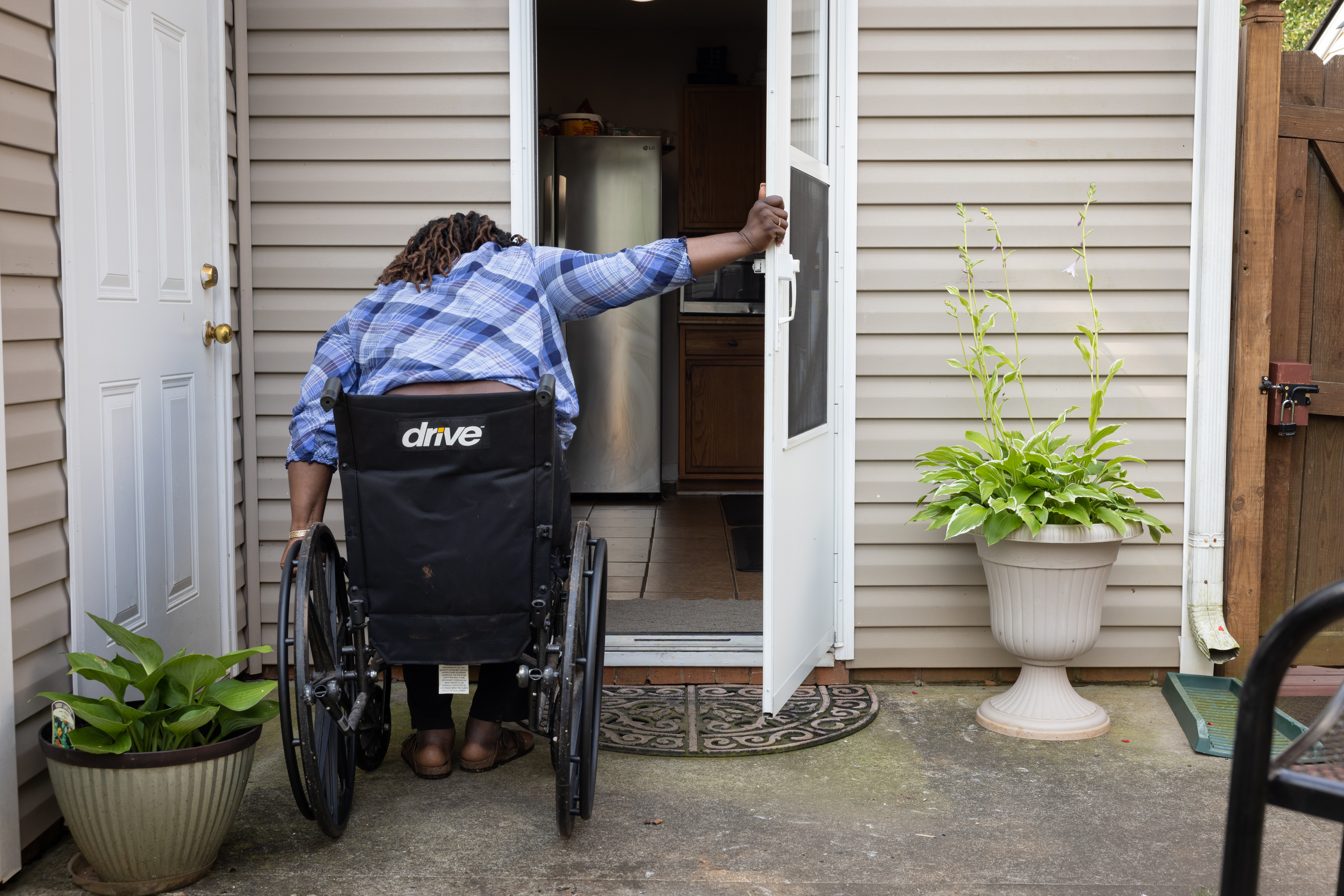
“The banking staff can know how to navigate with people that come in who are different and have different needs… At least have some kind of way of saying, ‘I hear you and I see you.’”
The Financial Health of People with Disabilities
This personal finhealth story is a part of our latest research report on the financial health of people living with disabilities. Immerse yourself in the key findings, obstacles, and opportunities that exist in this nearly universal experience.
Explore More Stories
The Hidden Costs of an ‘Invisible’ Disability: Simone’s Story
Unexpected expenses often mean stretched budgets for disabled people. As part of our in-depth report on the financial health of people with disabilities, 21-year-old Simone shares her experience.
A Former Banker Navigates Life Through a New Lens: Jonathan’s Story
While working in the banking industry in his early thirties, Jonathan began to lose his eyesight. When he told his manager he was having trouble seeing his computer screen, her response was clear: You’re on your own. Ultimately, Jonathan left his banking career due to a lack of accommodations. He held a few other jobs until blindness forced him to stop working completely.
Acknowledgments
This report was developed with support from Principal Foundation and in partnership with the National Disability Institute and The Harkin Institute.
Photography Credit: Julianna O’Malley Photography
